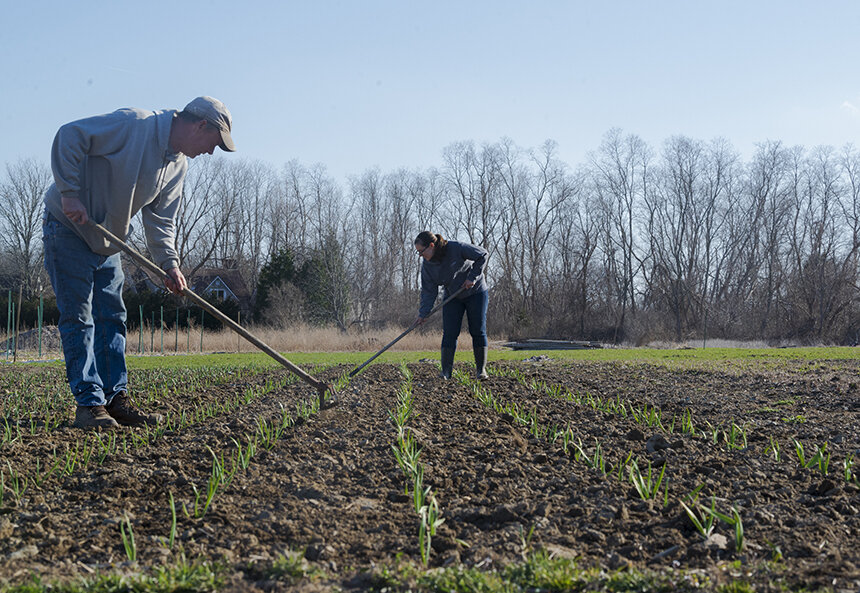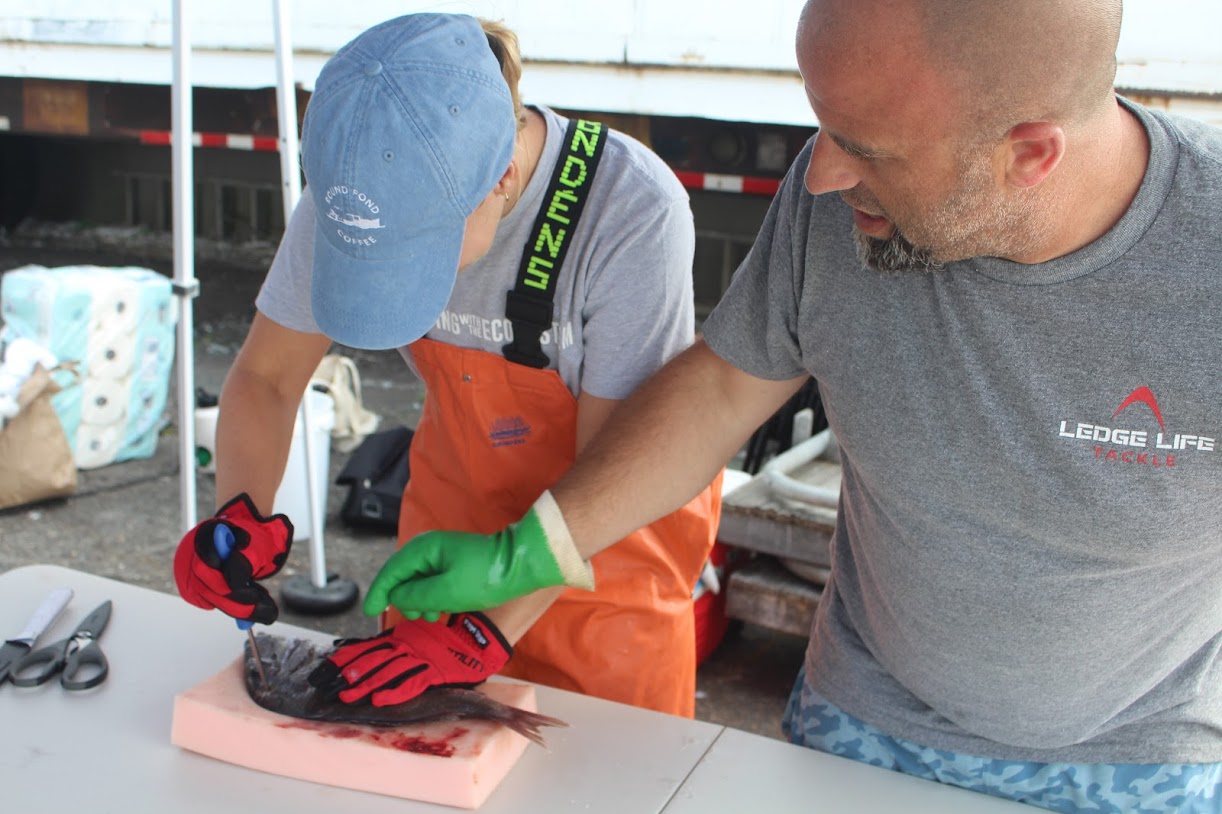Growing an Understanding of the Land, Each Other
June 26, 2013
LINCOLN, Mass. — The ground is saturated from heavy rains the previous night, and Polly Reeve bemoans her choice of footwear — cute, strappy sandals — as she guides a reporter around a puddle of mud alongside a field that’s beginning to shrug up some summer crops.
Reeve, director of development for The Food Project, a nonprofit that combines youth and community development with sustainable farming, is upbeat and effusive even as she skirts puddles and talks about her work.
The Food Project’s Summer Youth Program begins in two weeks, and Baker Bridge Farm — one of the Food Project’s eight growing sites — is preparing to welcome a new crop of young farmers. This summer, more than 100 teenagers from various ethnic and socio-economic backgrounds will work on the farm and learn about each other and about the importance of local food production.
The food they grow will be either distributed through The Food Project’s community supported agriculture (CSA) program, sold at a subsidized rate at local farmers markets or distributed to food pantries.
“The price (of the produce we sell) reflects the ability of local residents to pay,” Reeve said. “We want to get fresh food to those who don’t have access.”
The farmers market The Food Project runs in Lynn has the highest food stamp sales in the state.
It’s mid-morning, and a group of volunteers is out working in one of the fields. While its Summer Youth Program is its banner program, The Food Project also runs after-school programs and workshops for adults.
In the distance, stand two new hoop houses that will allow The Food Project to extend the growing season at this farm. The organization already has a 10,000-square-foot greenhouse at its farm in Boston, which it runs in partnership with the Dudley Street Neighborhood Initiative.
This year’s applicant pool for The Food Project’s Summer Youth Program was highly competitive, according to Reeve, who said the organization received four to five times the number of applicants it could accept.
Reeve’s own children participated in the program several years ago. “For my kids it was the most eye-opening experience,” she said.
All teens who participate in The Food Project’s programs are paid $200 a week and receive a free MBTA pass to remove any barriers for teens who need to earn money during the summer to support their families.
“We’re creating a level playing field; plus when you are paid, you have skin in the game,” Reeve said.
The Food Project, now in its 21st year, grew from the vision of its founder, Ward Cheney, who wanted to create an opportunity for young people from the city and the suburbs to work side by side on the land, producing food for the hungry and learning together.
The organization has grown since its inception to include 41 acres of farmland in Lincoln, Lynn, Beverly and Boston. Last year the organization employed 145 youth and grew more than 250,000 pounds of vegetables.
The Food Project’s formula for success is simple: connect people; grow food; give back; repeat.
“We’re turning the system on its head a bit and wonderful things are coming out of it,” Reeve said.



